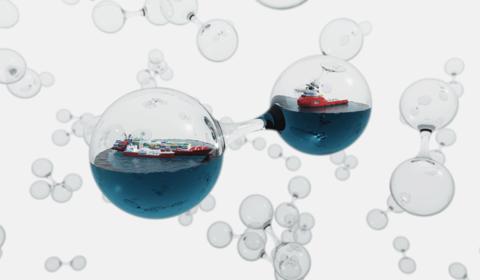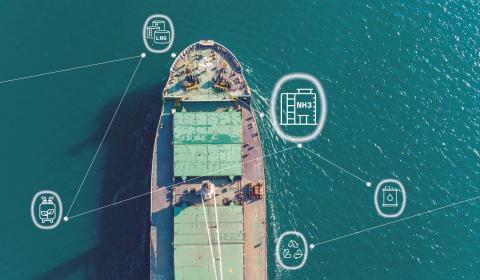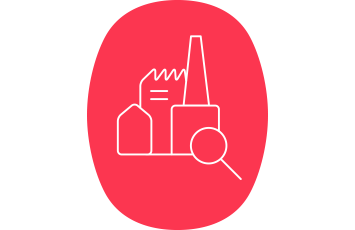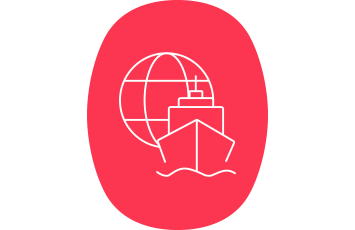
SUPPORTING SHIPPING’S DECARBONIZATION JOURNEY WITH NEW RULES FOR HYDROGEN-FUELLED SHIPS
It’s decision time for shipowners, who are facing important fuel choices in order to meet the International Maritime Organization’s (IMO) net zero targets.
Produced via electrolysis with renewable electricity, green hydrogen presents a potentially zero-carbon option from a well-to-wake perspective. To ensure onboard safety for shipowners that choose this path, Bureau Veritas has developed NR 678 Rules for hydrogen-fuelled ships.
The recipe for rigorous Rules
“We implemented an iterative process encompassing multiple technical sources to develop these Rules,” says Olivier Cartier, Technical Vice President. “These included R&D work, feedback from other ongoing projects, and technical discussions both with stakeholders and within IMO working groups.”
The development team looked at information from project risk assessments to elaborate requirements for each part of the onboard system. “Leveraging the feedback from multiple stakeholders – from shipyards and manufacturers to hydrogen suppliers – we can develop rigorous yet user-friendly Rules,” says Olivier. “Our goal is to reduce uncertainties, and to do that we need to gather this feedback right from the design stage.”
Our Rules primary intent is to be in line with the International Convention for the Safety of Life at Sea (SOLAS) and the IMO International Code of Safety for Ships Using Gases or Other Low-Flashpoint Fuels (IGF). They are based on an alternative design approach mixed with prescriptive requirements.
Our expert teams drew on their experience of various configurations that they have encountered throughout their years within the industry. “Some of this equipment is unusual in the maritime industry, such as multiple-element gas containers,” Olivier adds. “Significant time was spent developing requirements for the approval process of this kind of equipment.”
Tailored to the specifics of hydrogen-fuelled ships
The use of hydrogen power can have a significant impact on the structure and arrangements onboard a ship. It is therefore crucial that this choice of fuel be taken into account right from the earliest design stage. And it implies the requirement of a risk assessment in accordance with the IMO IGF Code, an absolutely essential step to evaluate the safety of the ship.
Alongside the need for special equipment, many specific conditions must be met to use or store hydrogen today. These are, for the moment, both new and uncommon – involving high pressures and low temperatures, for example. All design aspects need to be evaluated carefully by both the designer and shipbuilder. Bureau Veritas’ Rules support this, and surveyors will make them a particular point of attention during surveys.
Harnessing our experience for the road ahead
Bureau Veritas enjoys the privilege and the advantage of years of experience within the maritime industry. As a result, we understand the challenges the sector is facing.
“Our teams can draw on experience from projects using different storage equipment and deploying hydrogen in a variety of ways,” says Olivier. “This has enabled us to develop both classification Rules for hydrogen-fuelled ships and an additional class notation, HYDROGENFUEL-PREPARED, for ships that are designed to store and use hydrogen at a later stage.”
Bureau Veritas is by the side of shipowners, designers, builders and equipment manufacturers as they accelerate the energy transition with new technologies, designs and onboard integration plans. With our relevant and specific Rules, we aim to support that journey and help them run safe, sustainable and high-performing maritime businesses.










